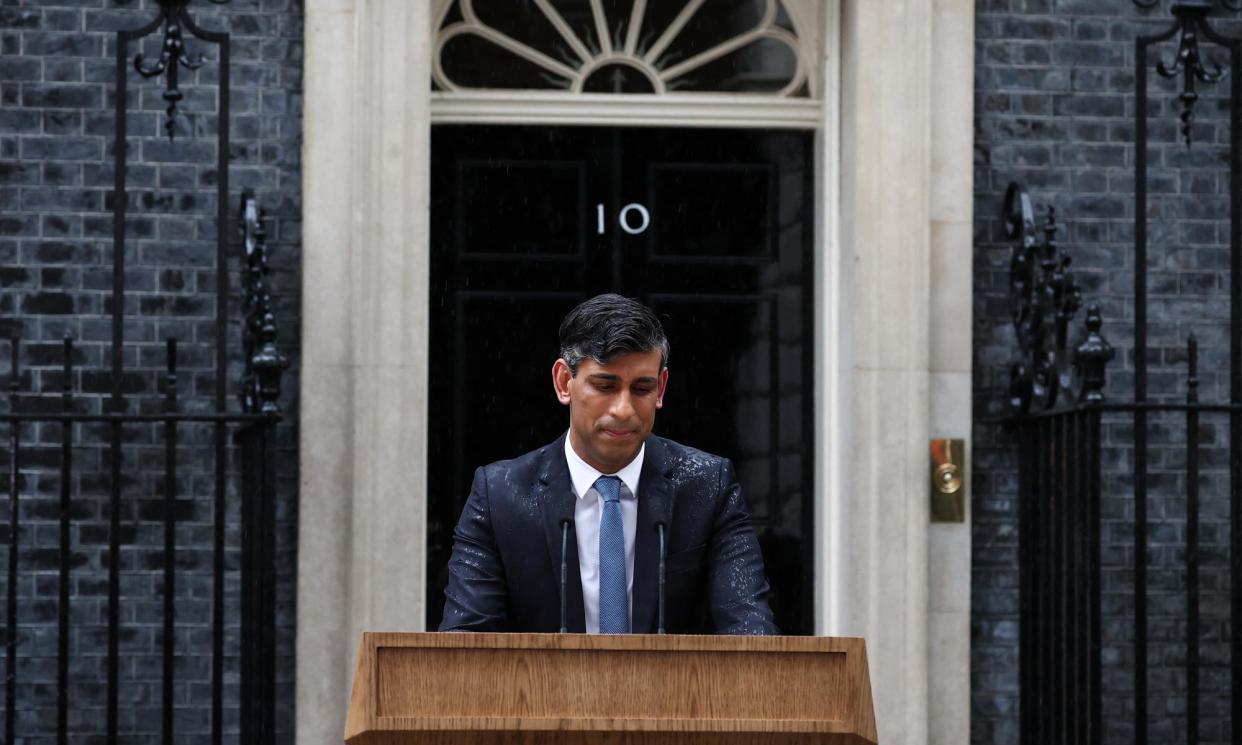Heaven Knows I’m Miserable Now: UK radio listeners nominate songs to sum up election campaign

Sometimes only a song can sum up the national mood. When a soggy Rishi Sunak fired the starting gun on the general election in May, D:Ream’s Things Can Only Get Better blared across Downing Street. Five long weeks later and voters are cueing up rather more mordant tracks to capture their political fatigue.
Listeners to Boom Radio, asked to pick a classic song to sum up their feelings about the campaign, have selected Pink Floyd’s Comfortably Numb, Queen’s Bohemian Rhapsody (“Is this the real life?/Is this just fantasy? / Caught in a landslide / No escape from reality”) and Bob Dylan’s All Along the Watchtower (“There must be some way out of here / Said the joker to the thief”).
All this was perhaps no surprise after a week in which the prime minister and the Labour leader, Keir Starmer, shouted over each other in Wednesday’s BBC TV debate, an audience member asked “are you two the best we’ve got?”, police started investigating the political betting furore and the Institute for Fiscal Studies said the main parties were not being straight about the future on tax, welfare and public spending and “we will be voting in a knowledge vacuum”.
The suggestion of Heaven Knows I’m Miserable Now by The Smiths and Simon and Garfunkel’s Sound of Silence (“Hello darkness, my old friend”), seemed almost inevitable.
The selections come in the week that Ipsos polling showed Starmer would have the worst satisfaction rating (-19) of any opposition leader taking power since at least 1979 and Sunak has the worst satisfaction score of any PM in an election campaign over the same period.
If the choices all seem dated, that is because the DJs at Boom Radio have an average age of 70 and their output is aimed at baby boomers, the generation often defined as those born between 1946 and 1964.
But this cohort is particularly relevant to the election as they are more likely to vote than any other. Younger boomers (and the oldest members of generation X – born in the mid-1960s to 1980) tell pollsters they are more likely to vote Labour. Among those over the age of 65, the balance of support switches to the Conservatives.
There were few really angry songs in the list. Rage Against the Machine’s Killing in the Name didn’t figure, although the Sex Pistols’ Anarchy in the UK did. The tone was more gently ironic with The Who’s Won’t Get Fooled Again (“Meet the new boss, same as the old boss”) and The Beatles’ Revolution (“You say you got a real solution / Well, you know we’d all love to see the plan).
But then again, the baby boomer generation is perhaps aware it does not have as much to lose as younger voters.
As one member of the generation, Khalid Haneef from Watford, wrote to the Guardian this week: “We missed the world wars; enjoyed the benefits of a functional and free NHS; partied in the 1960s; and we have a triple-lock pension. Tuition fees? We were paid to party at university! And we own more than 75% of the private housing stock in the country.”
For many baby boomers, things could hardly get better.

 Yahoo News
Yahoo News 
